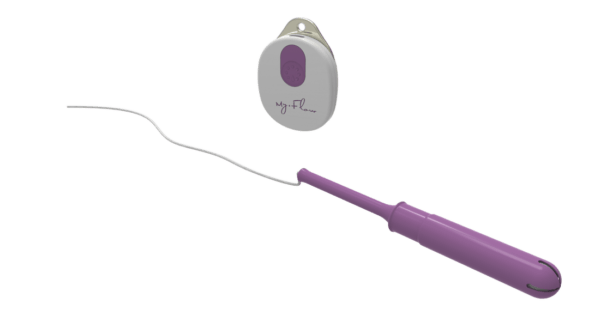Here’s a tech product you probably never expected – the bluetooth tampon. Yes, bluetooth tampon.
Tech company my.flow have come up with the data-reading menstruation device they say will help provide a solution to period anxiety, leakage and reduce the risk of Toxic Shock Syndrome.
But don’t worry, you’re not putting any wires or chips inside you.

Meet the 'smart' tampon. Image: My Flow
The smart tampon works thanks to an extra long thread which houses a conductive thread no thicker than a human hair, made from medical-grade materials which are already safely used in implants inside the body. The thread connects to a wearable 'belt clip' which is where the chip is.

